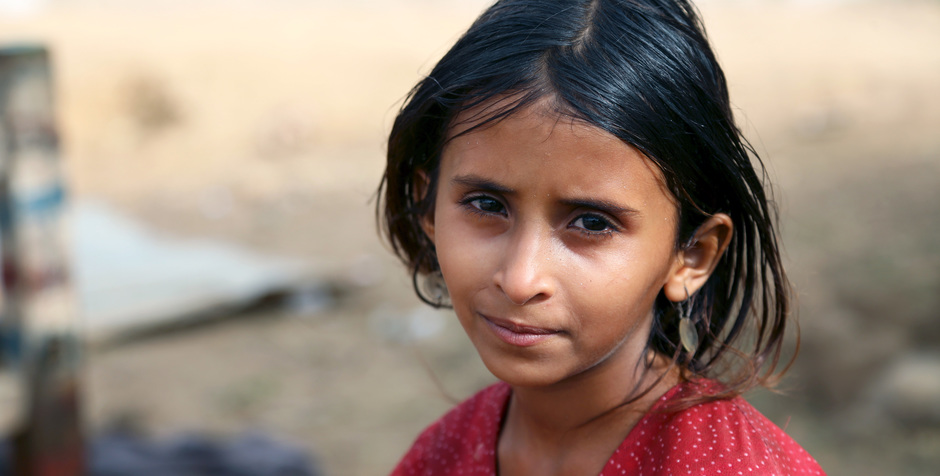Speaking for the Voiceless Facing Genocide at the United Nations
First they came for the Socialists, and I did not speak out—
Because I was not a Socialist.
Then they came for the Trade Unionists, and I did not speak out—
Because I was not a Trade Unionist.
Then they came for the Jews, and I did not speak out—
Because I was not a Jew.
Then they came for me—and there was no one left to speak for me.
-Martin Niemöller
Words are powerful things, but true power lies in the action or inaction behind words. “Genocide,” is an example of a powerful world. Prior to 1944, the world had no specific term to describe the slaughter of innocent people solely because they belonged to a particular national, ethnical, racial or religious group. But the horrors of concentration camps and the Nazi annihilation of the Jewish people demanded a description.
In 1944, Raphael Lemkin, a Polish-Jewish lawyer, created the word, “genocide,” “by combining geno-, from the Greek word for race or tribe, with -cide, derived from the Latin word for killing.” In 1948 the world agreed that genocide should never again be allowed to happen, and the Genocide Convention was created.
While the world was serious and well intentioned when the Genocide Convention was created, it is meaningless if the actions required to prevent and punish genocide are not taken. This is why it is extremely important that the world not only acknowledge that genocide is occurring – today – but that it must be stopped! Our words must be more than powerful rhetoric; they must be followed by action.
This week, the ACLJ, along with our European affiliate, the European Centre for Law & Justice (ECLJ), continues to plead the cause of Christians in Syria and Iraq who are under the genocidal attack of ISIS (the Islamic State). This week’s legal filing at the United Nations (U.N.) , ahead of the 32nd session of the U.N. Human Rights Council, briefly describes some of the atrocities that Christians are facing at the hands of ISIS:
The Christian population in both Iraq and Syria has been decimated. In fact, hundreds of thousands of Christians have fled Iraq and Syria since the rise of ISIS. The Islamic State’s religion-targeted abuses in Iraq include beheadings, burning alive in caskets, and other barbaric “killings, rape, kidnapping, enslavement, theft . . . destruction of religious sites . . . sexual slavery, forced conversion, ransom demands, property seizures, and forced business closures.” In Syria, ISIS has beheaded and stoned men, women, and children for blasphemy, heresy, and apostasy. ISIS has also demanded that religious minorities pay a tax (called jizya), or flee — punishing by death those who fail to comply.
But more importantly, our report calls on the U.N. to take action:
That the ongoing atrocities against Christians and other religious and ethnic minorities constitute genocide and that the U.N. and its organs possess the responsibility to protect as concerns that genocide is clear. . . .
While the ECLJ calls for swift and decisive action by the international community to stop the genocide and protect the victims, it also recognises that the first step is for the United Nations to recognise that the atrocities constitute genocide. A declaration by the Human Rights Council that the Islamic State is engaged in genocide and action by this Council calling for the United Nations General Assembly (and other appropriate organs of the United Nations) to follow suit would carry significant weight.
The Thirty-Second Session provides an excellent opportunity for this critical organ of the United Nations to squarely address the ongoing humanitarian crisis posed by ISIS. This Council should identify the subject atrocities as genocide at this Session. We respectfully request that this Council declare that the Islamic State and its followers are committing acts of genocide against Christians and other religious and ethnic minorities and to then act accordingly.
Our most recent request for the United Nations to action is one more step in the action we’ve taken to end this genocide. As you’ll recall, key pieces of our action plan are progressing in Congress. Several weeks ago, we sent a letter to U.N. Secretary General Ban ki-Moon urging him to recognize the ISIS genocide and to pressure “the U.N. Security Council and other U.N. bodies to do the same.” Thereafter, the Secretary-General’s representative raised the prospect of genocide before the U.N. Security Council.
We’ve also sent several letters to Secretary of State John Kerry. Our most recent letter to Secretary Kerry “thanked him for taking a critical stand against the genocide being perpetrated on Christians and for reaffirming his position in recent public remarks.” Furthermore, we urged him to continue to advance the plight of those experiencing genocide by urging the U.N. to recognize the genocide and take action to end it.
As we continue to advance this cause, we urge you to also take action and to sign our petition to end genocide today.

